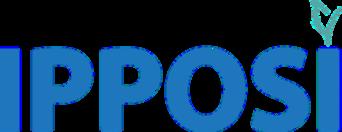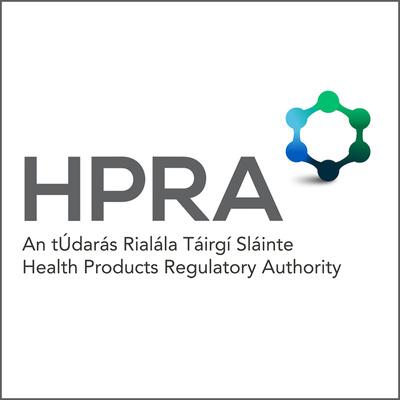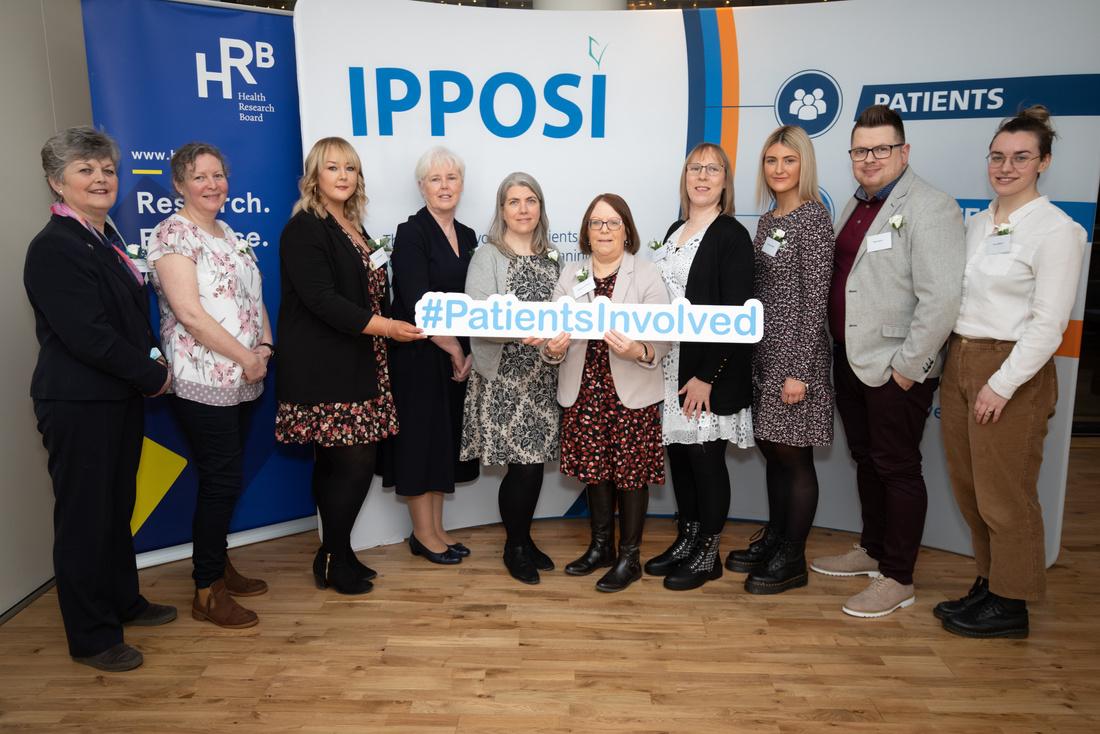LEARNING CATALOGUE
Kick-off Event
Purpose
Tuesday 28 March Half-day in-person kickoff meeting
Learning Outcomes
Programme overview, access to programme materials, networking
Module 1: March - April - May
Topic Lesson/Event Learning Outcomes

Getting Started
Overview of Medicines Research and Development (R&D)
Begin your learning on medicines research and development by taking this overview lesson
Describe the process of medicine discovery and development and identify the critical factors and decision points
Introduction to Medicines R&D
Process of Medicines Discovery and Development
Explain the concepts of efficacy and safety of a medicine
Relate pharmacovigilance to the concept of benefitrisk of medicine
Understand the concepts of life-cycle and intellectual property management of medicine
Introduction to Medicines R&D
Role of Patients and Patient Organisations in Medicines R&D
Explain the importance and describe the possible role of patients and or patient organisations in medicines development
Topic
Introduction to Medicines R&D
Lesson/Event Learning Outcomes
Role of Translational Research in Medicines R&D
Discuss the role of translational research in medicines development Discuss the potential application of the concept of personalised or stratified medicine in the medicines development process including the role of biomarkers
Introduction to Medicines R&D
Concepts of EvidenceBased Medicines and Outcomes Research
Outline concepts of evidence-based medicine and outcomes research
Introduction to Medicines R&D
Predisposing Factors and Underlying Mechanisms of Disease
Explain the importance and describe the possible role of patients and or patient organisations in medicines development

Introduction to Medicines R&D
Types of Medicines and Their Mode of Action and Use
Classify types of medicines and their mode of action and use
Non-Clinical Development
Requirements for nonclinical studies and the purpose and relevance of animal testing
Describe the need and requirements for nonclinical studies prior to clinical studies in humans and the purpose and relevance of animal testing
Non-Clinical Development
Development of medicines substance and final medicines product
Outline the steps in the development of medicines substance and final medicines product including chemical and biotechnology derived products
LEARNING CATALOGUE
Topic

Non-Clinical Development
Lesson/Event Learning Outcomes
Role of pharmacogenetics/ pharmacogenomics in the development of medicines
Discuss the techniques that are emerging in specific product development or disease areas
Understand the role of pharmacogenetics/ pharmacogenomics in the development of medicines State the ethical challenges
Clinical Development Clinical trials and trial management
Describe basic clinical trial concepts, the types and benefits of different clinical trial designs, and their practical implications including decisions to alter or end the trial before termination and the role that patients play
Clinical Development Early clinical development
Understand the key principles of pharmacology and methods of measurement
Describe the types of studies in early clinical development (phase I and phase II studies)
Clinical Development Trial participants rights and obligations
Describe trial participants roles and rights and how they are protected
at bit.ly/PEPapplication23
LEARNING CATALOGUE
Clinical Development Ethics
Clinical Development Statistics
Describe the history of ethics in clinical research and the concepts of the use of ethics for research involving humans
Explain how ethics evaluations are conducted internationally, nationally and locally
Describe the potential roles of patients at each level
Understand the basic concepts and special methods used in clinical research
Describe the purpose of the statistical analysis plan (SAP)

Describe types of data and the principles of data collecting and management in clinical trials
Clinical Development Documentation and management
Outline the principles and key elements of overall clinical trial quality management the source involved
Clinical Development Interpretation on dissemination of results
Describe the elements of clinical trial results including how to avoid bias, fraud, misconduct , ethics violations during trials and reporting of results
Describe how to perform critical reading
Topic Lesson/Event Learning Outcomes
2.5-hour virtual meeting with University College Dublin (UCD)
Clinical Practice
Clinical Development
Good
(GCP) LEARNING CATALOGUE
Topic Lesson/Event Learning Outcomes

Health Technology Assessment (HTA)
2.5-hour workshop with the National Centre for Pharmacoeconomics (NCPE)
Roles of the Regulatory Agency & the HTA Agency
Heath Technology
Assessment at HIQA
Health Technology
Assessment at the NCPE
Health Technologies
Health Technology Assessment (HTA)
Introduction to Health Technology Assessment
Health Technology Assessments (HTAs)
Cost-effectiveness evaluations
Why HTAs are important for health policy decisions
Health Technology Assessment (HTA)
Overview of the main Health Technology Assessment systems in Europe
Overview of the main Health Technology Assessment systems in Europe
Health Technology Assessment (HTA)
Patient Involvement in Health Technology Assessment
How can patients and patient groups can get involved in the HTA process?
Imagine that you are a member of the HSE Drugs
Health Technology Assessment (HTA)
1-hour webinarpractical exercise with IPPOSI and Peer Mentors
Group who make drugfunding decisions You will be given information on which to decide which treatment(s) you will fund
What a good HTA process involves
Health Technology Assessment (HTA)
Framework and key principles of Health Technology Assessment (HTA)
The principles applicable to structuring and governing HTA agencies
How patients can be involved in the process.
September
October
November
LEARNING CATALOGUE Module 2:
-
-
Topic
Health Technology Assessment
(HTA)
Health Technology Assessment
(HTA)
Health Technology Assessment
(HTA)
Health Technology Assessment
(HTA)
Lesson/Event Learning Outcomes
2 5-hour workshop with the NCPE

Patient Voice in Decision Making Preference Valuation
Quality of clinical evidence
Quality of clinical evidence
Overview of HTA including clinical effectiveness, economic evaluation, as well as ethical, legal and social implications (ELSI)
Relative-effectiveness assessments
Health-economic evaluations
Ethical, legal and social implications (ELSI) analyses
How the perspective of the decision-maker (e.g. regulator and payer), healthcare provider and patient might differ (when considering the clinical data for a new drug).
Clinical Effectiveness Assessment in HTA
The types of data that provide clinical outcomes of a new drug
Methods for identifying and combining information (e.g. systematic review, evidence synthesis, meta-analysis, and cost-effectiveness modelling)
Beyond Health-Related Quality of Life (HRQoL) and patient reported outcomes (PROs): Other sources of patient evidence
The principles, practical application and importance of patient reported outcomes in HTA
How this additional evidence can be used in HTA processes
LEARNING
CATALOGUE
Topic
Health Technology Assessment (HTA)
Lesson/Event Learning Outcomes
1-hour webinarpractical exercise with IPPOSI and Peer Mentors
As a patient or member of the public, what is the key information you require from a HTA report? Identify the top 2-3 most important things to be included in a HTA public report from your perspective.
Health Technology Assessment (HTA)
Patient Reported Outcomes (PROs) assessment and their role in supporting product development
The principles, practical application and importance of patient reported outcomes as evidence for health technologies. Where patients can apply these to the HTA process and formulary decision in their country
Health Technology Assessment (HTA)
Measuring HealthRelated Quality of Life (HRQoL)
The main approaches to measuring HRQoL
The limitations of current approaches and potential alternative approaches
The role of patients in developing HRQL tools

Health Technology Assessment (HTA)
Quantitative and qualitative research in support of HTA
The difference between quantitative and qualitative research
The role that quantitative and qualitative research play in HTA
LEARNING CATALOGUE
Topic
Health Technology Assessment (HTA)
Lesson/Event Learning Outcomes
Patient Involvement in HTA & Plain English Web Summaries
Reimbursement Decision Making in Ireland
Health Technology Assessment (HTA)
2.5-hour workshop with the NCPE

The Theoretical Excess Expenditure
The cost-effectiveness threshold in Ireland
Update on the HSE Medicines Management Programme
2-hour workshop with the NCPE Patient Submissions
Module 3: November - December - January
Topic
Regulatory Affairs for Medicines and Medical Devices in Europe
Lesson/Event Learning Outcomes
2.5-hour workshop with the Health Products Regulatory Authority (HPRA)
Introduction to the HPRA
Regulatory Affairs for Medicines and Medical Devices in Europe
Background to and general principles of medicines
Foundation information on the requirements of medicines regulation, covering aspects such as Regulations, Directives and guidelines used by regulators and stakeholders.
LEARNING CATALOGUE
Topic
Regulatory Affairs for Medicines and Medical Devices in Europe
Regulatory Affairs for Medicines and Medical Devices in Europe
Regulatory Affairs for Medicines and Medical Devices in Europe
Regulatory Affairs for Medicines and Medical Devices in Europe
Lesson/Event Learning Outcomes
International global approaches to medicines
The principles of regulatory oversight and contribution of international bodies
Regulatory Affairs for Medicines and Medical Devices in Europe
Patient involvement
The European Medicines Agency and where patient organisations/representatives are involved
Concept of pharmacopoeias
The principles of preparation and submission of marketing applications by marketing authorisation holders.
Principles of marketing applications File
An understanding of regulatory procedures for the approval of new medicines and for ongoing maintenance of marketing authorisations
Regulatory procedures for the approval of new medicines
The concept of pharmacopoeias, which will detail the legally binding quality standards for the identification and control of medicines.

Regulatory Affairs for Medicines and Medical Devices in Europe
Product Information Regulation File & Developing medicines for children
Insight into the documentation that is provided with the products – labels, leaflets directed at patients, and Summary of Product Characteristics which are primarily directed at healthcare professionals.
LEARNING CATALOGUE
Topic Lesson/Event Learning Outcomes

Regulatory Affairs for Medicines and Medical Devices in Europe
Requirements for the development of Generics and Biosimilars
Generic medicines and biosimilars and the process for authorisation of these products.
Regulatory Affairs for Medicines and Medical Devices in Europe
Principles of risk management
Safety monitoring & Eudravigilance
Safety monitoring. The concept of risk, risk management and risk management plans. The principles of pharmacovigilance. The management of safety data, reporting of adverse events and signal detection.
Regulatory Affairs for Medicines and Medical Devices in Europe
Regulatory Affairs for Medicines and Medical Devices in Europe
Regulatory Affairs for Medicines and Medical Devices in Europe
Safety Communications
DHPCs
An understanding of communication of safetyrelated information to patients and healthcare professionals.
Prescription or notwhen self medication is acceptable
When it is acceptable for a medicine to be available without a prescription.
2.5-hour workshop with the HPRA Safety monitoring
Regulatory Affairs for Medicines and Medical Devices in Europe
Provisions for the use of unlicensed medicines Advertising and information to the public and to healthcare professionals Codes of Conduct
Codes of conduct and advertising.
The background and process for reviewing advertising of medicinal products and the provision of this information will be discussed
The purpose of codes of conduct.
The provisions for the legitimate use of medicines that do not have an authorisation in Ireland.
LEARNING CATALOGUE
Topic Lesson/Event Learning Outcomes
Regulatory Affairs for Medicines and Medical Devices in Europe
GXP
Medicine shortages
HPRA supporting innovation

The system of regulation ensuring the good quality of medicines manufactured and distributed.
Medicine shortages and how these are managed with a view to prevention or mitigating their impact. The HPRA’s Innovation Office
Regulatory Affairs for Medicines and Medical Devices in Europe
Devices Introduction, What Is A Medical Device, The Actors Involved In Medical Device Regulation , Steps to Placing a Device on the Market File, Medical Device and IVD Classification, Clinical Data Requirements, Conformity Assessment & CE Marking, Regulatory Oversight of Medical Devices on the Market, Traceability and Unique Device Identifiers
An overview of the EU’s regulatory system and legislative framework for medical devices.
The role and importance of regulatory agencies and stakeholders within this system.
The steps required to place a medical device on the market.
The monitoring and surveillance required through the life of a medical device.
Regulatory Affairs for Medicines and Medical Devices in Europe
2.5-hour workshop with the HPRA Medical devices
- Mark Byrne,
LEARNING CATALOGUE
I signed up for the programme because I was diagnosed with stage four cancer at the start of the pandemic. I wanted to gain a better understanding of the decisions that other people would be making, which would affect me.
Programme Graduate






IRISH PLATFORM FOR PATIENT ORGANISATIONS, SCIENCE & INDUSTRY (IPPOSI) WWW.IPPOSI.IE The 2023 IPPOSI Patient Education Programme is supported by: Plus a number of small, unrestricted grants from IPPOSI industry members HEALTH RESEARCH BOARD SUPPORT AWARD: IPPOSI-2020-001 IN-KIND CONTRIBUTIONS FROM OUR THREE EDUCATION PARTNERS









